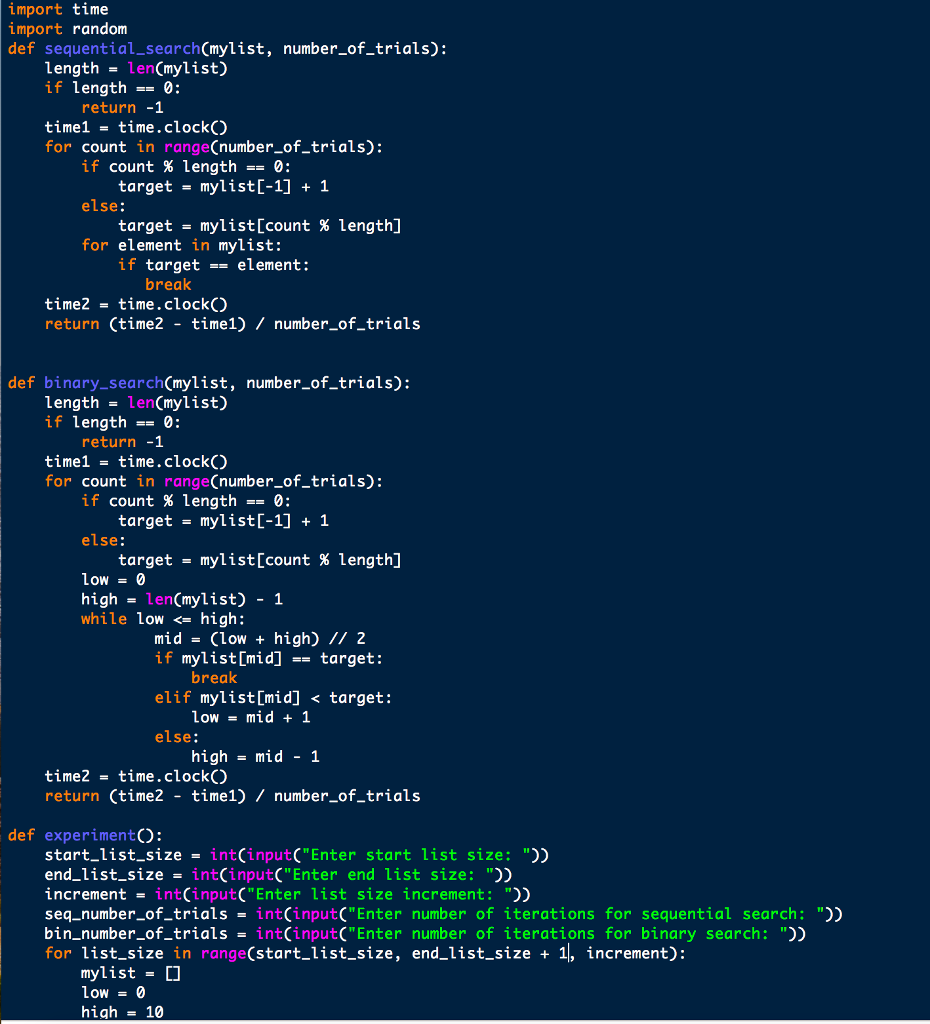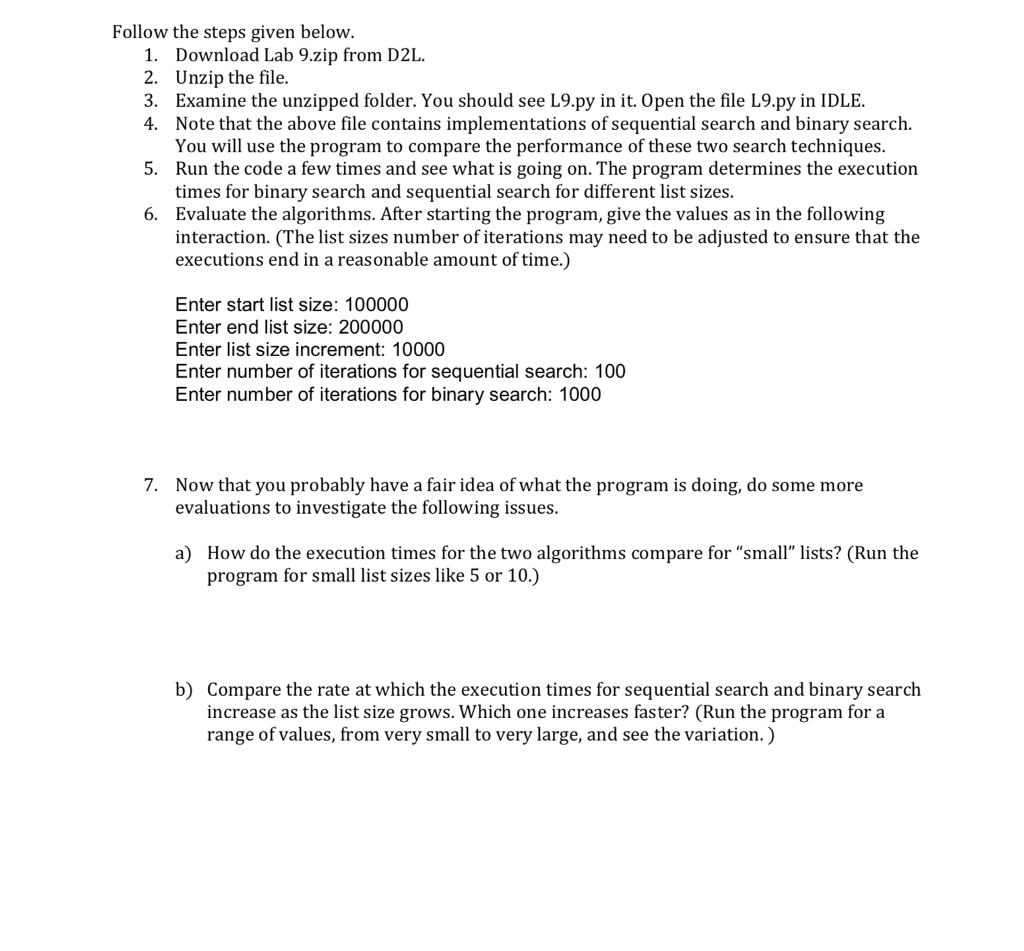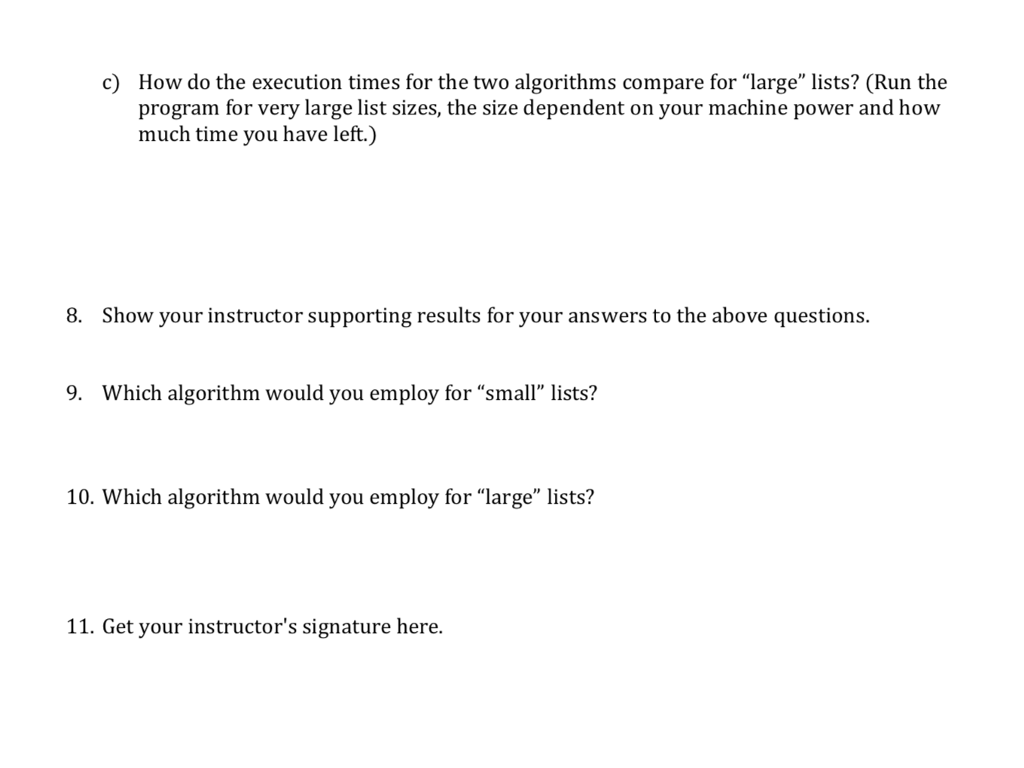Answered step by step
Verified Expert Solution
Question
1 Approved Answer
import time import random def sequential_search(mylist, number_of trials): lengthlen(mylist) if length = 0: return 1 timel time.clockO) for count in range(number_of_trials): if count % length-0:




Step by Step Solution
There are 3 Steps involved in it
Step: 1

Get Instant Access to Expert-Tailored Solutions
See step-by-step solutions with expert insights and AI powered tools for academic success
Step: 2

Step: 3

Ace Your Homework with AI
Get the answers you need in no time with our AI-driven, step-by-step assistance
Get Started


